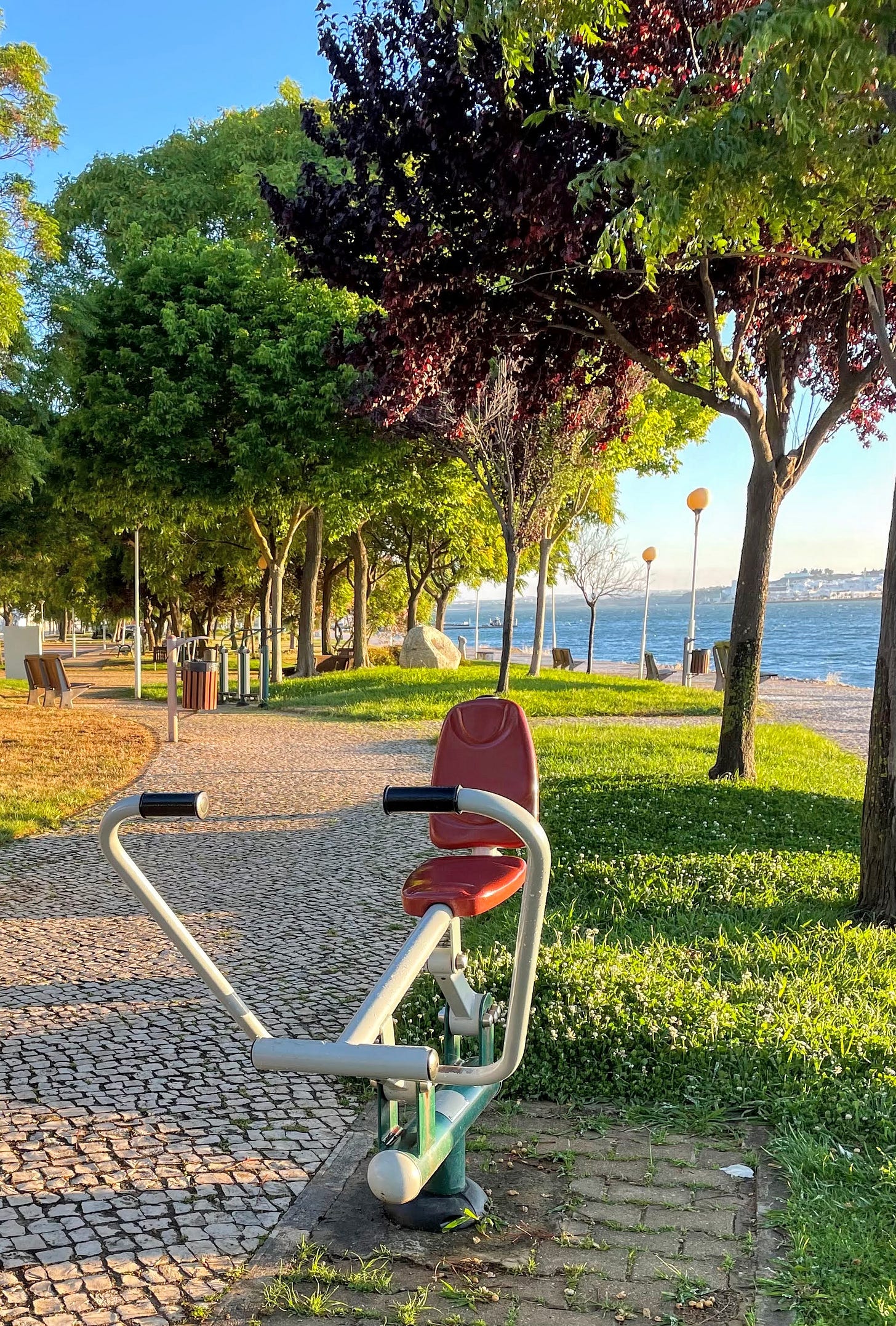I should not have to say this but I am not a scientist or sociologist. But I have read about Blue Zones and researched the life expectancy of various countries. I have also had 18 months to observe how people live here and how health care is provided. (Not only for those of us with private health insurance; but also through the public health system.)

Health Care
I was talking to a “local” recently about how the Portuguese utilize their public health care system. She explained that most wait until they are sick to see a doctor. There is not a habit of getting a routine physical. Generally speaking, colonoscopies don’t start at age 50 … gum pocket measurements are not routine when you see a dentist.
In the private system, you can get all these things…you just have to ask. When I scheduled an appointment to have my teeth cleaned, for example, they cleaned my teeth. No X-rays, no pesky measurements. When I inquired they said, all I needed to do was ask.
Now I am not suggesting that preventative screening is not beneficial. I am, however, wondering how without this care, the average Portuguese lives nearly 3.5 years longer than an American.
Blue Zones
I suspect you have heard about the Blue Zones … those places where people live longer.
He has discovered five places in the world – dubbed blue zones – where people live the longest, and are healthiest: Okinawa, Japan; Sardinia, Italy; Nicoya, Costa Rica; Ikaria, Greece, and Loma Linda1, California. — Blue Zones
Now Portugal is not a blue zone location. In fact, Portugal’s life expectancy (average - 82.47, men - 79.56, and women - 85.15) is about 5 years shorter than Okinawa Japan. And it isn’t even the best in Europe. Spain takes that prize at 83.86. But it is better than the UK (81.64) and the US (79.05). So given the Portuguese tend to seek medical care only when they are sick, one wonders…
Is it the?
I asked the “local” mentioned above, what could explain it. She said, “It’s the air…we have very good air.” Perhaps. There is no doubt that poorer communities in the US are subjected to toxic water, landfills, and air which reduces their life expectancy. However, when considering the blue zone lifestyle habits five items jumped out at me.
The Portuguese “move naturally”. Most don’t belong to a gym … instead, they walk or bike. They don’t hop in the car if the store or restaurant is within a mile or so. They clean their own homes and tend to their own gardens. There are also simple exercise machines in most parks that are used regularly.
They “downshift” and reduce stress. As mentioned in many other posts, meeting times here are a rough approximation. I was to meet with our builder at 14:00 one day to give him the key. At 14:30 I called him to see if he was coming. “No, I can’t make it today…I can come tomorrow at 14:00.” I could tell in his voice, that he wasn’t stressed out about it. The next day, when we met, there wasn’t an apology or excuse. The Portuguese “don’t sweat the small stuff!”
Most follow a Mediterranean diet which is “plant slanted”. There is lots of olive oil, fresh fish and beans. When meat is eaten, it is primarily pork (and in small quantities … 3-4 ounces).
“Wine at 5” is certainly a blue zone habit I have observed (and enjoy) in Portugal … along with the adage, “It’s 5 o’clock somewhere in the world.”
Finally, there is a sense of community that permeates Portuguese culture. “Family comes first”… one belongs to a “community”… and both are nurtured regularly. We observe it during Sunday afternoon meals that go until dusk. With people having a coffee in the morning at their usual spot. Rather than looking at their cellphones, they joke with their neighbors sitting at the next table. While I am also not a sociologist we have definitely felt these differences throughout our stay.
Living to 150
I recently read an article about research that suggests that humans could live to 150 years of age. Frankly, I am not at all certain I want that. I am a quality rather than quantity kind of girl.2 And while I don’t pretend to have all the answers, I do know this…our quality of life has definitely improved.
Loma Linda jumps out of the list … historically the 9000 Seventh Day Adventists that live there skew the statistics. This community is primarily vegetarian, does not smoke or drink, and participates in regular exercise.
In January The Lancet Public Health (click here) reported that the number of cases of dementia in Portugal could triple by 2050.








Yes-walking is just a way of life here. Our 78 yr old Portuguese neighbor invited us for the day to her holiday home on Farol Island. We followed along for 1/2 mile to the ferry as she pulled her two trollies filled with stuff to replenish her cottage. She finally reluctantly accepted our offer to pull one of the carts. Then another walk from the ferry to the house (there aren’t any cars on the barrier islands). And of course another walk along the beach. At lunch in an open-air beach restaurant we observed an extended family of 10 boisterously laughing and sharing food & drink and even rotating spots around the table. They were still there when we left. This is Portuguese family at the best!
Fun and insightful post. I would have assumed fish is the most eaten meat rather than pork, so that was surprising. Nonetheless, I hear they eat a lot of sardines, which are very high in Omega 3 and 6, and could be another factor that contributes to longevity by reducing heart disease.